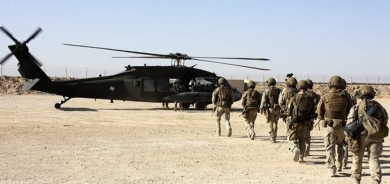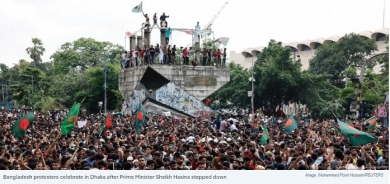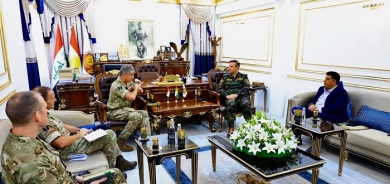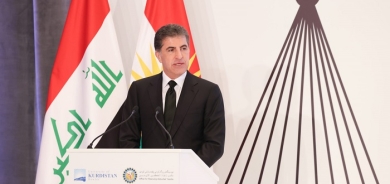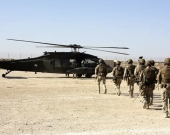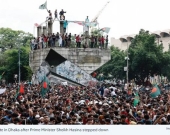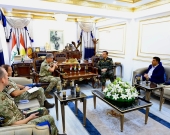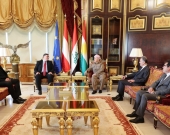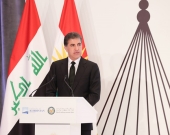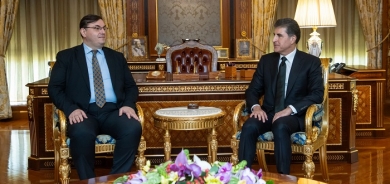Sisters in blood: Halabja victims mourn with Shingal

HALABJA, Kurdistan Region — Hundreds of Halabja citizens attended the first anniversary of the Shingal massacre on Monday, also attended by Kurdish Yezidi representatives and the city’s officials, to call on the international community to recognize and condemn past and present genocides.
Fariq Halabjay, a local photojournalist from Halabja who covered the Shingal massacre, also exhibited photos of the aftermath of the massacre at the event. One photo, of a woman helping another older woman drinking a bottle of water, grasped the attention of many, perhaps of those who were feeling just as thirsty in the hot weather of Kurdistan’s August.
Halabja, itself a victim of genocide, rose to international infamy in 1988 as it fell victim to the worst single chemical attack on a civilian population in history at the hands of former Iraqi dictator Saddam Hussein’s military.
Luqman Abdulqadir, the head of the Halabja Chemical Victims Society, read a statement on behalf of the organizers of the Shingal event.
“We have been calling on the international community to recognize the past genocides by the consecutive Iraqi regimes, so that we are reassured that similar genocides do not reoccur. But unfortunately, 26 years from the crime of Halabja chemical attack and the genocidal Anfal campaign, Shingal told us that the shadow of genocide continues to threaten our lives to this very date,” Abdulqadir said.
The Anfal campaign, also conducted by the Iraqi regime in the late 1980s, reportedly claimed the lives of 182,000 Kurds, during which thousands of Kurdish villages were emptied of their residents, who were forced into concentration camps.
“We would like to send our message of solidarity and empathy to the victims of Shingal,” said Abdulqadir, who warned without international recognition future genocides are likely to happen. “We call on the international community, the United Nations and all rights organizations across the world to not be silent concerning the Shingal genocide, and to not allow another genocide against our nation.”
Three representatives of the Yezidi victims, two of whom were members of the Nineveh provincial council—of which Shingal is a part—took part at the event. Xidir Elias read a statement on behalf of the Shingal victims to the audience.
“It is a great honor that the first anniversary of the Shingal genocide is organized in the land of Halabja,” said Elias as he went on stage. “We used to remember Halabja every March 16 at eleven o’clock standing in silence. Unfortunately, today your sister, Shingal, joined and fell victim to a great crime, too.”
“We don’t know what the crime of the people of Kurdistan is? Aren’t we humans, too?” said Elias with a strong voice. He also voiced his criticism against the Arab countries in particular, stating that they have yet to recognize the Halabja and Shingal genocides.
The governor of Halabja, Abdullah Mohammed, who sponsored the event in cooperation with a number of NGOs, drew similarities between both massacres.
“We as the province of Halabja, also the peace capital of Kurdistan, as a victim of the former oppressive Iraqi regime, commemorate this anniversary and condemn the perpetrators of this and similar crimes, no matter where it happens and who the perpetrator is,” Abdullah said.
Despite the twin tragedies past and present, Elias for his part sounded optimistic that this time it was different.
“[The Yezidis] did not flee to a foreign place but to their homeland of Kurdistan. It is true that many times human disasters have befallen our nation—that many times the Kurdish people fled to Turkey and Iran without being welcomed. This time though the Kurdish people welcomed the Yazidis as sisters and brothers.”
Rudaw


